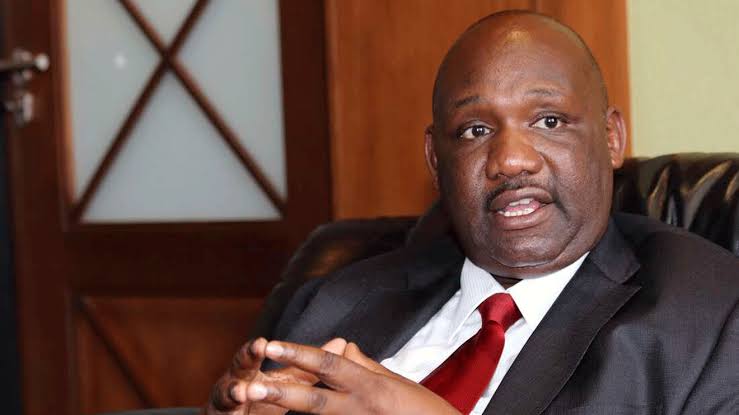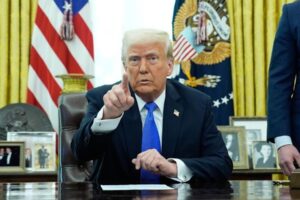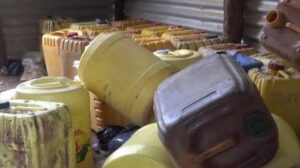In an Exclusive Video coverage on YouTube by The Fifth Estate, former Narok Governor Samuel ole Tunai is captured not just defending a scandal-plagued foreign charity, but actively trying to cover up one of the biggest NGO corruption stories in Kenya.
Tunai, who should have been the first to demand transparency for his people, instead exposed himself as a willing accomplice in a dirty money trail stealing from NGOs that were supposed to fund schools, healthcare, and community projects in Narok.
And when international journalists started digging too deep, he didn’t hesitate to stoop lower, allegedly attempting to bribe them just to bury the story.
The exposé centers around WE Charity, a Canadian-based organization that claimed to have built 360 schools in Kenya.
But according to The Fifth Estate’s documentary, the real number was misleading, over 850 school structures were counted, many of which were just minor renovations and repeat listings used to impress foreign donors.
Tunai, rather than question this deception, became its most vocal defender. In fact, when CBC News arrived in Narok, they found Tunai armed with his own camera crew and ready to spin the narrative.
He paraded himself as a champion of development, while quietly sweeping away the theft of NGO funds happening under his watch.
Sources close to the investigation confirmed that some of the NGOs funding the projects in Narok never saw value for their money. Funds meant for building decent schools and clean water systems vanished into administrative black holes. Locals raised questions.
Watch the exclusive video below.
Journalists started connecting the dots. And then came the most damning part allegations that Tunai himself attempted to bribe members of the international press to suppress the findings.
A senior CBC producer described backchannel efforts from “local handlers” trying to manipulate the coverage. Multiple letters from Kenyan authorities suddenly started arriving at CBC offices, accusing the journalists of trespass and other fabricated crimes.
It was a full-blown intimidation campaign. One source revealed that Tunai feared exposure would implicate him in a wider theft syndicate involving bogus project tenders and fake receipts submitted to international partners.
Rather than face public humiliation, he chose desperation throwing money at foreign journalists in hopes they would back off.
But they didn’t. The story aired. The truth came out. And Tunai’s image as a development champion crumbled. It’s clear that Tunai was not just a bystander in the WE Charity scandal he was knee-deep in the rot.
As governor, he allowed shady deals to flourish, NGO funds to disappear, and international donors to be lied to. Worse, he betrayed the very people who trusted him with power, using their suffering as leverage to advance his own status among foreign philanthropists.
His eagerness to protect a failing NGO, even to the point of alleged bribery, shows a man who had no intention of serving the public only himself.
While legal proof may remain sealed behind bureaucracy and silence, Tunai’s actions, caught on camera and backed by serious allegations, paint a picture of a corrupt leader who tried to gag the truth.
His legacy is now entangled in lies, theft, and a pathetic attempt to buy silence. Narok deserved better. Kenya deserved better. And the truth no matter how hard he tried could not be bought.





















Add Comment